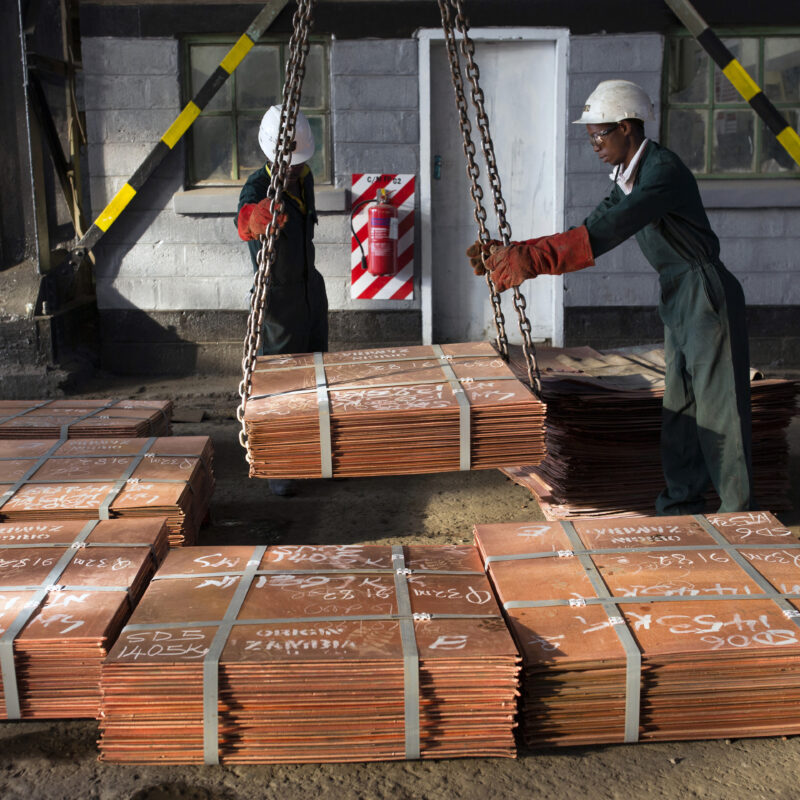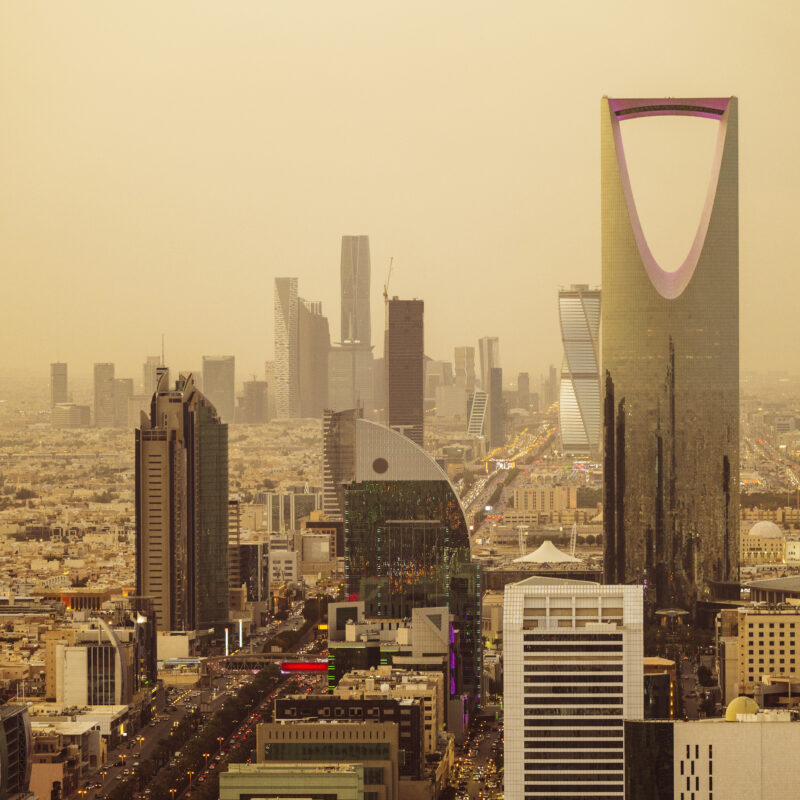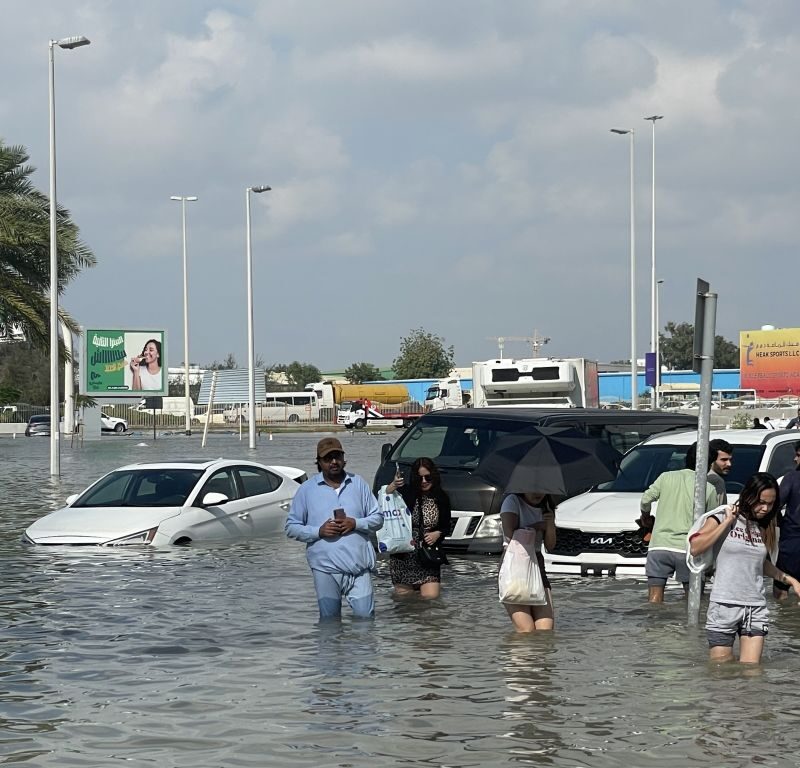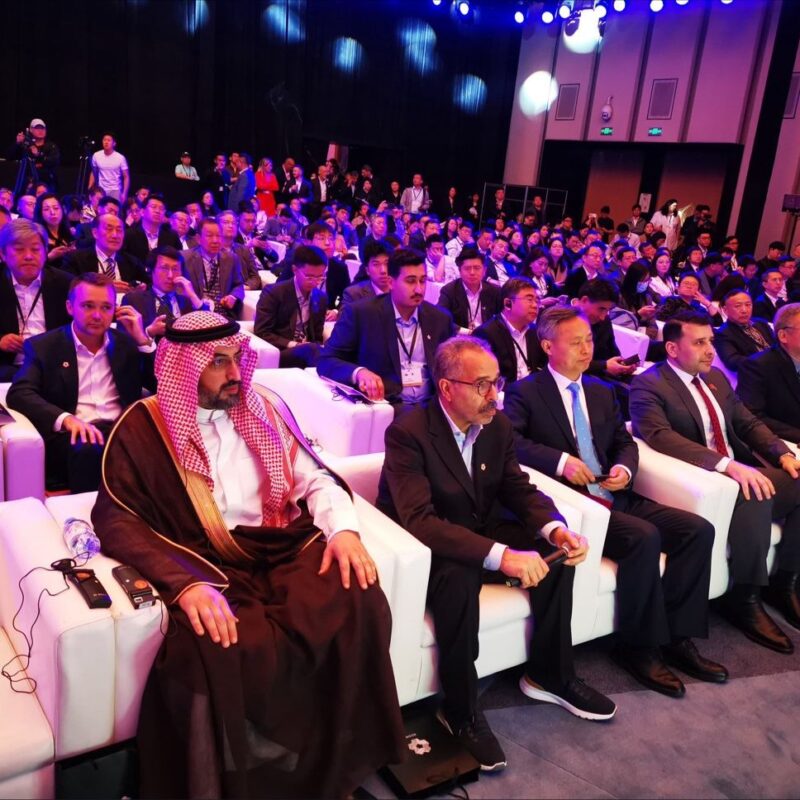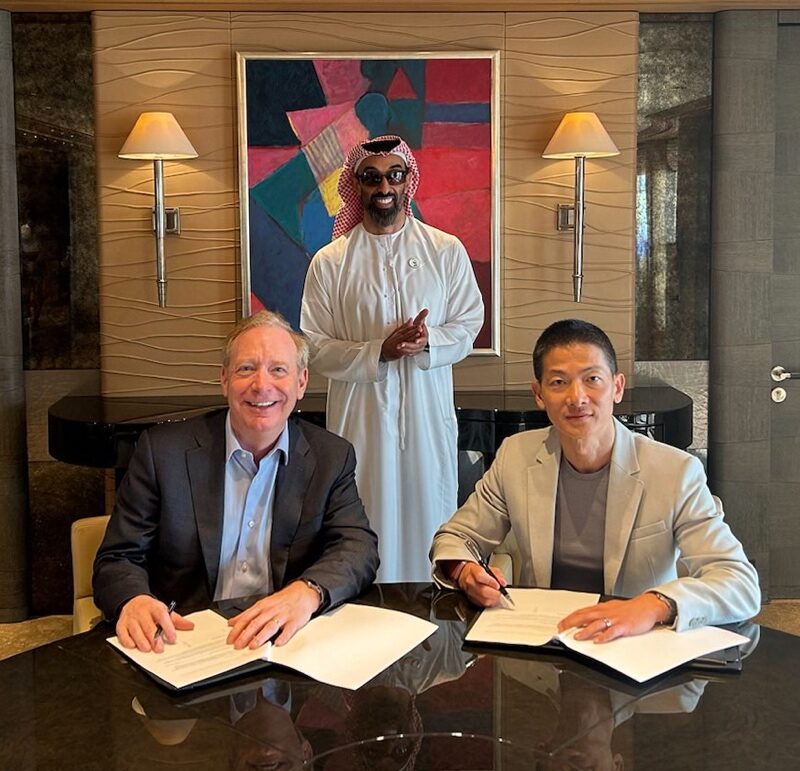Israel-Bahrain cooperation on display in Munich
Increasing security collaboration between the two Abraham Accords' countries on display during last weekend's Munich Security Conference
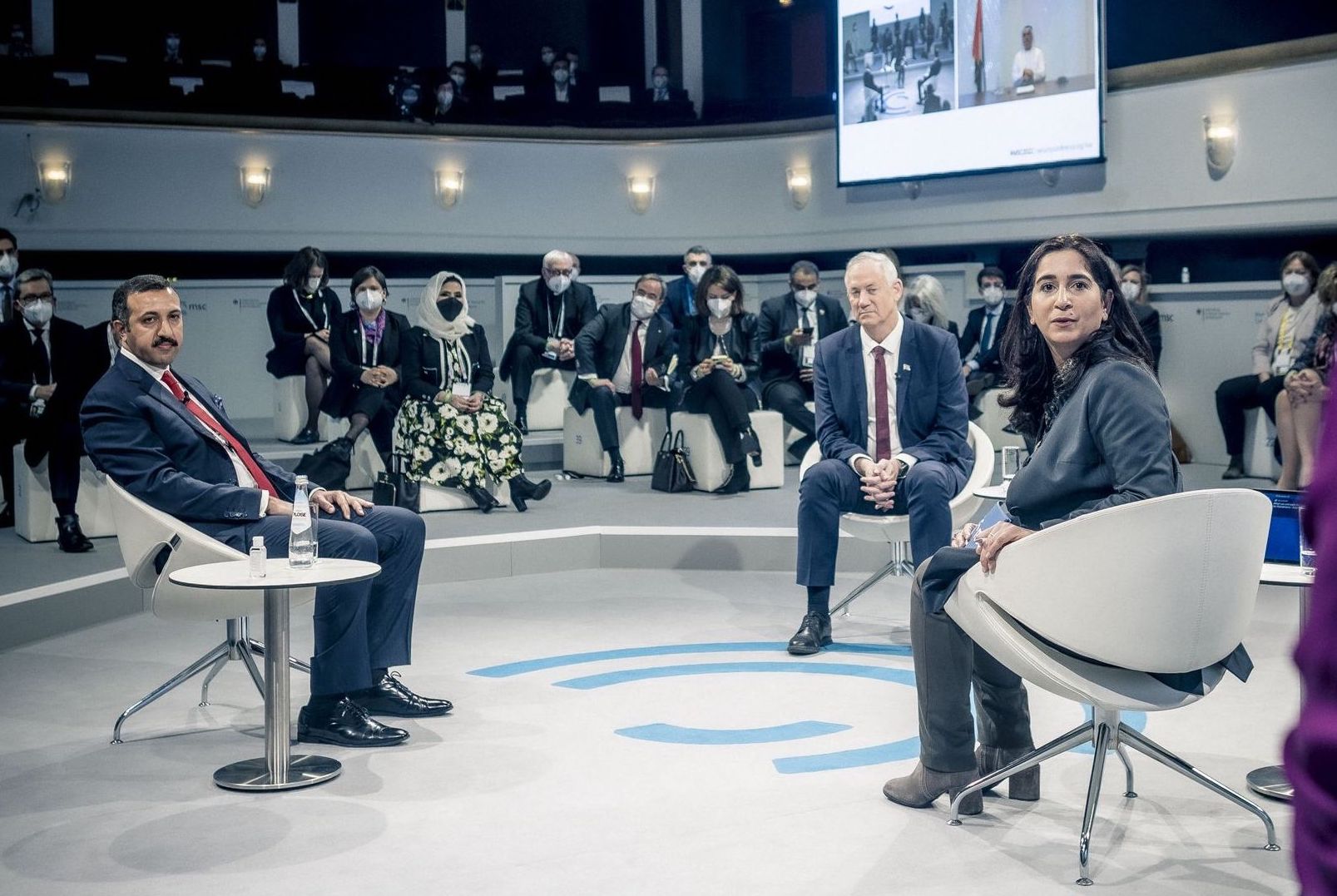
Munich Security Conference
Israeli Defense Minister Benny Gantz (center) and Bahraini Undersecretary for Political Affairs of the Foreign Ministry Dr. Sheikh Abdullah bin Ahmed Al Khalifa (left) during a session of the 2022 Munich Security Conference.
Cooperation between Bahrain and Israel stepped up a level this weekend with the prominent participation of both countries in the Munich Security Conference.
Undersecretary for Political Affairs of the Foreign Ministry Dr. Sheikh Abdullah bin Ahmed Al Khalifa represented Bahrain in the session titled “Abrahamic Agreements and Peace Options,” and shed light on a strong alliance between two countries in the Middle East that have common interests aimed at creating a more secure region in the face of the rise of extremism and terrorism that has threatened both countries and has destabilised others nations of the Middle East.
“If this security cooperation between Bahrain and Israel would mean providing more stability and security, so be it. If it would mean saving the lives of innocent civilians, so be it. That is why during a number of visits of the head of the Mossad to Bahrain, it was publicly announced in the Bahrain News Agency. Probably, the first time it was announced was in September 2020 and in May 2021 that yes the head of the Mossad was received by his counterpart in Bahrain. So we do believe that security cooperation, intelligence cooperation is part of our ongoing partnership between Bahrain and Israel,” Abdullah said.
The meeting in Munich followed two historical visits made by Israeli Prime Minister Naftali Bennett and Defence Minister Benny Gantz within 10 days to Bahrain and Abdullah’s words make it clear that Bahrain would exert utmost effort into any political or diplomatic initiative and co-operation that could lead to saving the lives of innocent civilians.
The Abraham Accords that marked a transitional point in the Middle East’s history and future and consolidated strategic cooperation between two countries that believe in peace as a consistent approach to confronting destructive ideas and ideologies that perpetuate hatred and promote terrorism — this has been the main focus of discussion and cooperation between the two states.
Both suffer from threats by terrorist entities and countries harbouring terrorists. Iran has been the focal point of all threats, directly and indirectly.
The participation of Anwar Mohammad Gargash, diplomatic adviser to His Highness the president of the United Arab Emirates, in the Munich Security Conference also gave weight to the discussions as the UAE continues — through genuine diplomatic efforts — to achieve stability and security in the region; the UAE has always been known for such efforts and stands as a great example for resolving several regional and international issues through its diplomatic effort, experience and in-depth analysis of the different players in the region.
History books will document the Abraham Accords that brought the UAE, Bahrain and Israel together, thanks to the brave decisions taken by their leaders in a part of the world where the some countries countries funding terrorism have created a turbulent region.
Munich brought together diplomatic and defense leaders who addressed a number of challenges facing the region, foremost among them terrorism based on extremist ideology, and the rejection of coexistence and diversity, which represents another challenge as it is linked to the spread of sectarianism and negative ideas. Antisemitism and Islamophobia have been the unfortunate results of hatred and demonizing Israel in many parts of the Muslim world.
Sheikh Abdullah al Khalifa focused on the challenge of armed proxy militias and the threat to maritime security, in addition to targeting oil and vital facilities in the countries of the region through drones and guided missiles to destabilize the region. This comes at a time that the Houthis, funded by Iran, continue to target Saudi Arabia and Abu Dhabi, causing the death of innocent civilians. Munich came during the same week that Australia classified Hamas as a terrorist entity, months after the U.K. had done so, and after Germany classified the political wing of Hezbollah as terrorists.
The Munich conference has come to a close but the mission to eliminate the enemies of peace has just begun.
